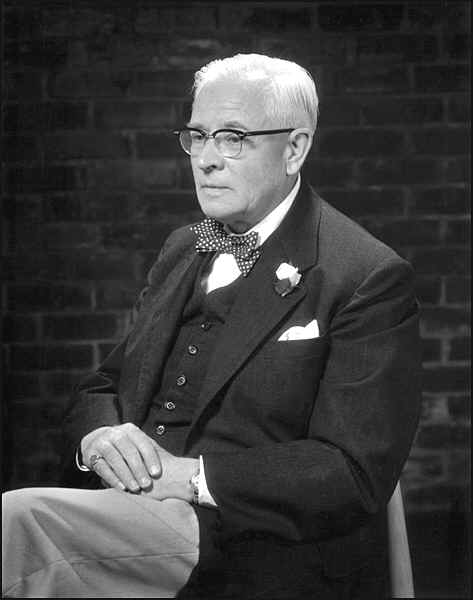
This morning, rising with formless, benignant wonderings about my future and vague remembrances of my long-ago youth, I surprised myself with an abrupt focus on Prof. Joshua Whatmough (“WUTT-moe”).
I googled and found a perfect description of his terrifying and exhilarating classroom (in 1947) put up on a webpage by one of Whatmough’s former students, William Harris, Professor Emeritus, Middlebury College. Prof. Harris’ recollections lit up a room I hadn’t been in for many years.
In 1962, I, a Harvard sophomore on the way to a chemistry degree, inexplicably and cavalierly signed up for Linguistics 120 (Comparative and Historical Indo-European Languages). On the first day of class, nervous about prerequisites, I queried Prof. Whatmough about my obvious deficiencies. High school German had enabled me to satisfy Harvard’s foreign language requirement with a barely passing mark, but I had only intellectual passion—no background—in linguistics. Whatmough smiled, assured me that there were no prerequisites to enrolling and that I’d be fine in this introductory course, and directed me to a seat with a tilt of his head. He then described Ling 120 to the class: a broad overview of Indo-European languages, with attention to the philological development of language families, focus on cognates as an analytical tool, no assigned reading, no hour exam, no mid-term, no paper…just a final exam. It was rumored this was to be his last year of teaching, so the class was more than twice as large as in past years. I looked around as Whatmough began chalking the board. About 25 students, all older than I, were leaning into his lecture, taking notes, so I put my head down and did the same.
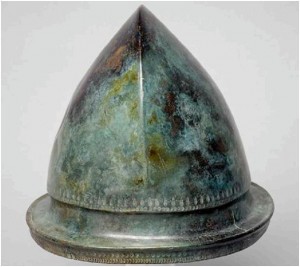 On the second day of class, Whatmough looked out over the class and asked, “A bronze helmet was found near Negau in Steiermark in 1811. What was its significance to the study of Old Germanic?”
On the second day of class, Whatmough looked out over the class and asked, “A bronze helmet was found near Negau in Steiermark in 1811. What was its significance to the study of Old Germanic?”
It was, to me, a startling and unanswerable question: This was not a course in archaeology, and with no assigned reading or prerequisites, Prof. W could not expect anyone to know the answer.
Three hands went up.
Whatmough looked at his seating chart. “Herr Bollinger?” (Whatmough would often address students with an honorific or salutation from the language he was then dealing with.)
Herr Bollinger answered crisply, as if he had just dug the helmet up, “An inscription on the artifact, the so-called Helmet B, is thought by some to be the earliest example of Old Germanic.”
 “Indeed,” Whatmough agreed. “And what is that inscription? Fräulein Carelli?”
“Indeed,” Whatmough agreed. “And what is that inscription? Fräulein Carelli?”
“That depends, sir, upon which source you read.” Seeing Whatmough nod, Fräulein Carelli continued, the several sources obviously within her ken, “Mommsen transliterated it as… but Pauli believed that it was….” Carelli’s Old Germanic sounded convincing to me.
“Very good,” Whatmough acknowledged. “And how was this translated?”
“That again,” continued Carelli, “depends upon whom one reads.” She then offered two or three erudite translations that were so complete that Whatmough pursed his lips in appreciation and moved on to another subject.
It was at this point that I realized that I was in trouble. After class I asked Prof. Whatmough about my lack of preparation for what now seemed to be a very demanding course. I cited Helmet B as an example. He noted that Herr Bollinger and Fräulein Carelli were grad students in linguistics and were expected to know these things, and that these digressions were interesting, but not critical to doing well in Comparative and Historical Indo-European Languages. “You’ll be fine,” he said.
So I persevered.
After a couple of weeks, Whatmough’s pedagogical pattern was evident: he’d wobble into the room with his green book bag over a shoulder, his cheeks reddened and white hair fluffed by Cambridge weather, open his binder, glance at his notes, and ask a question. Often he would select someone at random. The questions were easy to answer because he ended each lecture with an emphatic pronouncement, and these introductory questions always directly referenced that previous conclusion.
Somewhere in early November, slogging through slush to get to Longfellow Hall, I arrived just a bit late and plopped down in my seat just as Prof. Whatmough asked his start-the-class question: “Mr. Cotler, what is the relationship between Illyrian and Albanian?”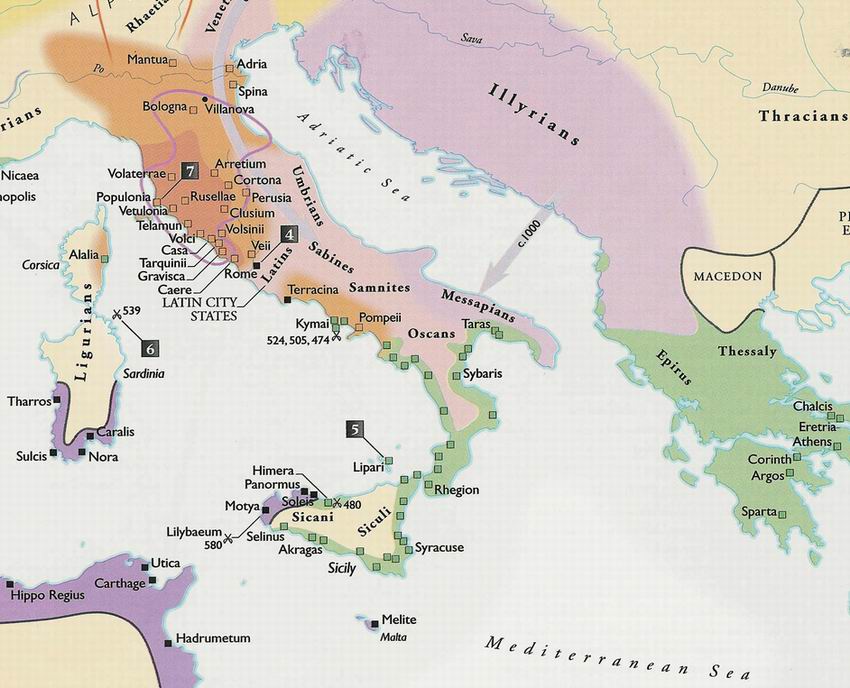
I had neglected to look at my notes since the previous class, and in those few moments between the end of his query and my response, my life as a student of linguistics flashed before my eyes. I remembered that Prof. Whatmough had become dramatically agitated while discussing theories about a direct connection between Illyrian and Albanian and had finished up the previous hour with a fierce glaring, “I call them Illyriomaniacs!” His passion was unforgettable, but I had no memory of which side he’d been on. Could I clear my throat while casually opening my notebook and glancing at the last lecture? There was no time. I swallowed, lifted my eyes to meet his, flipped a mental coin, and stated loudly and clearly, “There is a direct linguistic relationship between Illyrian and Albanian.”
I was wrong. Stunningly wrong.
Whatmough’s mouth widened almost imperceptibly. The room was silent. It was as if I had slapped the old man.
The rest of the semester is a shadowy memory. I went to every class, took thorough (and, to my later review, incomprehensible) notes, and prepared for the final exam by reading papers written by Prof. Whatmough on topics that seemed relevant. I shortchanged my other courses.
The three-hour final exam was remarkably similar to the 1947-48 Comparative Philology 140 exam that Prof Harris cites in his “A Requiem for Philology” essay.
I distinctly remember that my exam began identically: “Answer question 1 and not more than three others.”
I could not even read question 1, which included words written in a character set that I had never seen before. I brightened a bit at question 2, which asked for a discussion of “matters of linguistic interest” regarding the comparison of the words for numbers in several different languages. I had memorized the words for one to ten in eight satem (the Sanskrit family) and centum (the Latin family) languages, including Gothic, Old Church Slavonic, and Lithuanian. That question took me 30 minutes to answer (not particularly well). I had two-and-one-half hours left. But the remainder of the test was incomprehensible. In silence, and overseen by vigilant proctors, I gnashed, cursed, and pitied myself for the hubris that drove me to take this course.
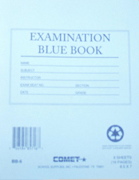 Fifteen minutes later, I took the path of pathos. I opened my nearly blank blue book and inscribed a note to Prof. Whatmough on the inside cover. Mercifully, I cannot recall my text, but it was a pitiable cry based upon the unjustifiable contention that Whatmough’s assurance that I’d be able to handle Ling 120 had led me to what was sure to be a failing grade. I begged for leniency.
Fifteen minutes later, I took the path of pathos. I opened my nearly blank blue book and inscribed a note to Prof. Whatmough on the inside cover. Mercifully, I cannot recall my text, but it was a pitiable cry based upon the unjustifiable contention that Whatmough’s assurance that I’d be able to handle Ling 120 had led me to what was sure to be a failing grade. I begged for leniency.
Several weeks later, I was stunned to receive a C+. Only later did I learn that Whatmough, made soft by his last year of teaching, had given A’s to those who did the work, B’s to those who didn’t, and a C+ to the young lad who flunked.
Had I known this going in, I’d have listened better (and taken fewer incomprehensible notes) and would now remember more of the old man’s stories. He was a terrific teacher, a unique store of intellectual anecdote and opinion, and a charming homunculus.
I remember him saying on the last day that he intended to begin his retirement by going to the Yukon where he would learn Aleut. He was fluent in 8-22 languages depending on how he defined “fluent.”
“I have been told, however, that to travel effectively in those territories I shall be required to ride a donkey, and according to my sources, such transportation will undoubtedly result in my demise. I am convinced, however, that, given my indomitable spirit and fortitude, it will be the donkey that will die, not I.”
And with that, Prof. Joshua Whatmough smiled, walked out of my life, and fixed himself forever in my memory.
Many thanks to Prof. Harris for shining a light on this poignant reminiscence.
* * * * *
Originally posted on February 11,2008, this post was featured in Language Log, one of my favorite blogs, on September 1, 2009.


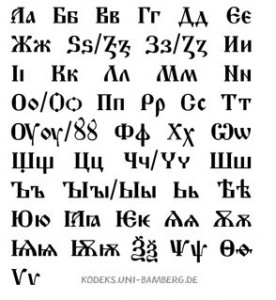
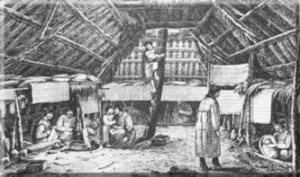




10 Comments on “Prof. Joshua Whatmough — Linguistics 120”
Steve,
I never read blogs, but made a first exception to look at yours. I thoroughly enjoyed your description of your linguistics course. It brought back memories of my undergrad days, the anxiety and exhilaration of launching one’s intellectual life.
Best wishes.
Oliver
It brought back memories of my undergrad days, the anxiety and exhilaration of launching one’s intellectual life.
My thoughts too. I went to the other Cambridge, and remember the first lecture in metallurgy. I had good A- and S- Levels in Physics, but was completely thrown (as was everyone else) by the very first question the lecturer asked: “How thick would a steel pressure vessel have to be to hold 10 atmospheres?”
He then proceeded to derive this from scratch using known observations to obtain a rough figure for the tensile strength of steel (how you could easily bend a steel paperclip, how you could bend a steel wire coathanger fairly easily, how you could just about bend a steel coatpeg by hanging from it); then using calculus and an analogy with a balloon to derive what pressure would make a steel “bubble” burst. All with rigorous error limits.
School physics had all been about conducting standard experiments to derive known results. Error limits were, frankly, largely made up to justify the difference between your result and the textbook’s.
The idea of applying a mixture of observation and analysis to a completely unknown problem was strange and terrifying, and I never got fully into the mindset. I got a Third.
A direct connection between Albanian and Illyrian is difficult to establish due to the dearth of Illyrian writing preserved from ancient times.
Most historians do believe that modern Albanians are the descendants of the Illyrians, however because of Albania’s affiliation with the Ottoman Empire and it’s conversion to Islam during that period (today Albania is mostly secular and has many religious communities living in peace), it became the fashion in Greek and Serbian Orthodox circles to attempt to write the Albanians out of history as a way to make them pay for adopting the religion of the Ottomans.
Today, in 2008, the University of Vienna has begun the largest ever study on the Albanian language which has already yielded results that prove an ancient linguistic roots in the region.
As Albania is re-introduced into Europe after a period of epic isolation under the dictator Hoxha, the world will get to know again the people of the eagle and learn to respect her for all she has given Europe since pre-Hellenic times.
A fascinating comment from Scanderbeg that probably has Prof. Whatmough spinning. While I would like to think that my connecting Illyrian to Albanian was prescient, and that my pronouncement will ultimately be validated by the Vienna study, I cannot deny the memory of intellectual panic that befogged my mind in the instant just before I answered the white-maned linguist’s question.
I was a sophomore Chemistry major in 1960 when I took Whatmough’s Linguistics 120. Other than having had high school French and Latin as my languages, my experience was much the same as yours. I still can’t figure out how I got an A in that course; I did my best to annoy Whatmough on the final exam by dismissing one of his pet theories as numerological rubbish.
What a weird old man he was.
Many thanks, Steve Cotler, for posting this reminiscence of the incomparable Joshua Whatmough. In the spring of 1960, with more self-confidence than sense, I enrolled in Linguistics 120, which I had been assured would give me a leg up in Sanskrit, and almost immediately found myself completely out of my depth. I wasn’t just the only undergraduate; I was the lone first-year student, and my moment of humiliation was self-inflicted, coming when I volunteered an answer to a question about Latin phonology with an impertinent reference to Greek dialects. “You guessed that answer,” Whatmough shouted, and I miserably nodded in agreement. “Never guess! Linguistics is a science, the most precise of the social sciences, and you must never indulge in linguistic guesswork.” Steve, you recreate the course perfectly in its magnificent ramblings through an endlessly fascinating field, and while the exams varied but little from year to year, the examples relevant to any iteration of the course depended on Whatmough’s whims and the expertise of the graduate students, so it hardly encouraged plagiarism. Now in my state of semi-retirement I realize how much my own career has been shaped by his precept and example, little as I may have realized it. He was passionate about detail, he had an infectious zest for life, and his kindness and courtesy were far-reaching in their effects. Your post has reminded me how much I owe him, and I gladly repay that debt here.
Thanks for the comment. I suspect many of us spun through Whatmough’s erudite world without our mental feet ever touching solid ground.
Comments are closed.